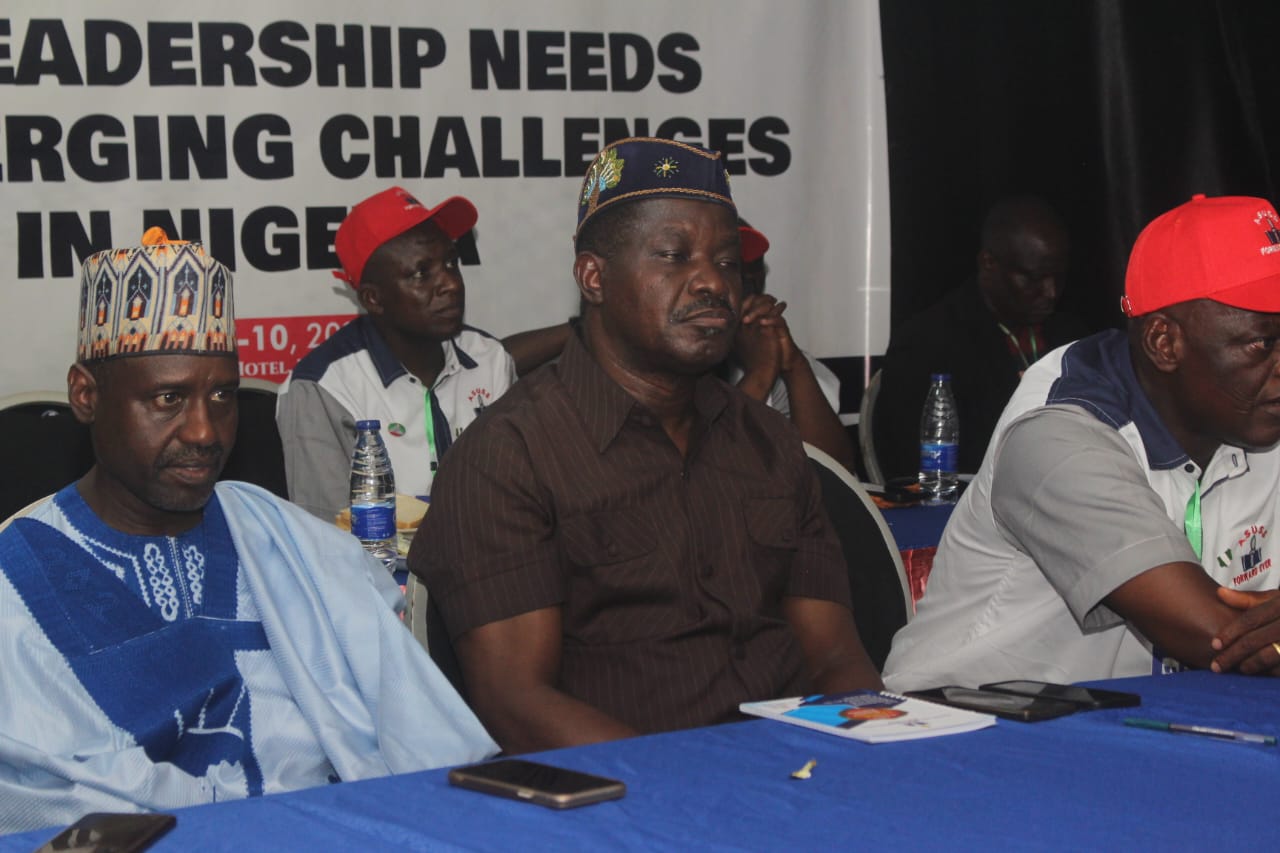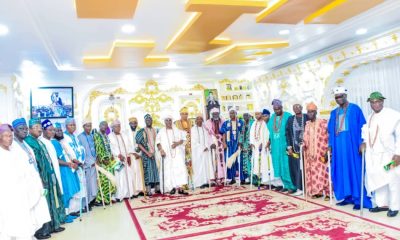News
Why We Need Leaders With Intellectual Capacity To Achieve Improved Welfare For Workers- TUC President

The Trade Union Congress , TUC says Trade Union Movements in the contemporary global arena requires leadership with high intellectual capacity for productive engagements to achieving improved welfare for workers.
The National President of the TUC, Comrade Festus Osifo stated this in Abuja, during the opening ceremony of a two day workshop organized by the Academic Staff Union of Secondary Schools, ASUSS, tagged, “the leadership needs for the emerging challenges in Nigeria”.
Comrade Osifo noted that advancement in technology, particularly the emergence of artificial intelligence were bringing new dynamics to the workplace that challenged rethinking in the industrial relations space because of it’s threat to the services provided by human beings.
Represented by the First Deputy President of the Congress, Dr Tom Etim Okon, the TUC President charged the ASUSS leadership the need for teachers to be conscious of this reality in the discharge of their responsibilities, not just as labour leaders, but as classroom teachers who mould the destiny of young Nigerians.
He said there was need for ASUSS leaders at all levels to constantly check themselves if they were trustworthy and have integrity as those were key to providing the required direction in advancing the welfare of their members in the modern times.
“As a leader, you must be trustworthy, check yourself are you trust worthy? Check yourself about integrity. Do you have the managerial skills and capacity to provide such leadership you have sought and got by the mandate of your members?”
Comrade Osifo said constant training and retraining was important in leadership to be attuned with the realities of the moment and the skills demanded to provide the modern day industrial leadership.
The TUC President emphasized the essence of timing in leadership that ” in today’s modern day industrial relations practice, time is of essence, time to intervene, time to engage government,time to also to attend to your member’s needs and time to be available promptly because time is the soul of business.”
He said table bouncing was no longer acceptable in the modern day industrial relations,hence labour leadership requires intellectual capacity and capability to engage management, understand all the nuances in labour administration and developmental issues in labour administration.
In a remark, the national President of the Academic Staff Union of Secondary Schools, ASUSS Mr Sam Omaji argued that as a Union of Secondary Schools teachers in charge of training children in their middle ages, ASUSS recognized the need for intellectually demanding trade union, rather than barricades.
Mt Omaji appealed to the federal government to give priority to secondary education in Nigeria as it was a major connecting training ground between adolescent and adulthood.
He pleaded with the government not to merge the National Secondary Schools Commission with any other agency for improved attention to secondary education in Nigeria.
In a paper presentation, a legal practitioner and former Head of Service to the Ekiti State Government, Dr Gbenga Faseluka emphasized that the freedom of workers to associate and join union of their choices for the protection of their interest was a fundamental one enshrined in the constitution which government is bound to protect.
Similarly, the Head of Administration in the office of the President of the Nigeria Labour Congress, Dr Onyeka Christopher took the participants through the process of bargaining in modern day industrial relations.
Dr Christopher stressed the need for Labour leaders to abreast themselves to the paradigm shifts and dynamics of labour relations in line with the advancement in work places in the 21st century occasioned by ICT revolution
-

 News2 days ago
News2 days agoOsun Communal crisis: Slain NSCDC operative Buried Amid Tears [Photos]
-

 News4 days ago
News4 days agoKings Worshipping Idols Are Herbalists-Oluwo
-

 News3 days ago
News3 days agoFIDA Calls For Prosecution Of Medical Doctor Accused Of Raping Teenage Admission-seeker In Osun
-

 News2 days ago
News2 days agoNSCDC Officer Killed, Palace Burnt, Others Injured As Communal Clash Erupts In Osun Communities




